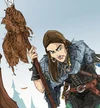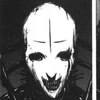- 17
- 25
- 9
- 34
Tower of Glass is about a egotistical businessman called Simeon Krug and his obsession with contacting the Ayyys. He has already given the world androids- red skinned artificial slaves separated into three castes- alphas, betas and gammas. Like in Huxley's Brave New World, the alphas are the smart ones and Alpha Thor Watchman is placed in charge of building Krug's tachyon transmitter which we plans to use to answer an alien signal from the stars. This structure is the Tower of Glass. However, the androids are not just docile slaves. Many look towards a time when they will not be slaves. The Android Equality Party is one manifestation of this dream. Another is the Church of Krug- a church which Thor Watchman and Alpha Lilith Meson are high priests. Meson has become a lover of Krug's feckless son Manuel, in an effort to awaken him to the plight of his father's creations. They hope to create an escatological event between father and son which will trigger Krug to enact the long prophesied emancipation of android-kind. This book features a ton of graphically described fricking.
Man Plus is the Six Million Dollar Man if Lee Majors got his peepee cut off. The book describes in horrifying detail every day of the experiment to turn a human astronaut into a Superman capable of living on Mars. The story is entirely told from the perspective of this hapless subject.
He is initially very enthusiastic but becomes increasingly unnerved by the callousness of the people to whom he has signed his life over. One morning he wakes up to find his genitals have been removed and a frick-up with admin meant nobody told him it was going to happen.
The book is a critique of the concept that progress is always a good thing and science always has the answers. Probably not for the squeamish, however.
(Fine if you're cool with castration stories tho)

- 62
- 94
Context: Samuel R. Delany is a prolific sci-fi author who: is gay, was sexually abused as a kid (but denies it was abuse), and grew up to believe that man/boy sexual relationships should not be criminalized.
READ IT -> I've written about him in an earlier dramapost <- READ IT
Despite his love of man/boy child abuse, Delany continues to have a huge fandom - particularly among people who normally love a good cancellation (again, read my previous post). On Monday, The New Yorker published a charming interview with him which included a reference to him "once praising a NAMBLA newsletter". In reality, he has his own page on the NAMBLA website  and has been very explicit over the years, including this quote from a 2009 biography:
and has been very explicit over the years, including this quote from a 2009 biography:
Today, The New Yorker piece made it's way to Hacker News. The thread isn't very long, but the takes are entertaining:
What's "transitive" about Delany's support for NAMBLA? They have one policy and it's in their fricking name.
2009 is well over two decades ago 
Why are you going digging in for dirt in someone's comment history to defend a NAMBLA supporter? 
- 30
- 21
To discuss your weekly readings of books, papers and texbooks.
I read 20 pages of Paradise Lost this week as I’m more focused on the bookclub reading.
Interesting video about the Devil. It talks about Paradise Lost and Faust.
- 23
- 78
- Aisha : Banned. Bookposting.
- 4
- 7
See title.
I think I'm getting recommended them because I like Dan Simmons. Hence picture of honeylocust tree my uncle encountered in Kentucky. Frick those things, man.
- Fifteenth : Words words words
- 97
- 44
Greetings dramacels and !bookworms 
As promised, today we are holding our first bookclub discussion thread. We’ll be discussing the first 7 chapters of “The Master and Margarita”, written by the late Russian author Mikhail Bulgakov, set in Stalinist Moscow  .
.
I hope you have enjoyed these first chapters, I certainly did. Based on the numbers of pages read from chapters 1-7, next week discussion will be about chapters 8-17.
I know it was supposed to be at noon E.T. However I’m posting a bit early because I’m off for a family lunch in half an hour, and I don’t want to longpost there.
Have fun with the discussion!
- 27
- 28
I panic read the 97 pages earlier to not let my fellow worms down. Did anyone else order the hardback off Amazon and get a book that's as small as a postage stamp? Tamagochi for scale
Don't forget the discussion is Sunday!!! haha
!bookworms cause I don't know if it works in the title
- 54
- 79
- 1
- 3
Turning and turning in the widening gyre
The falcon cannot hear the falconer;
Things fall apart; the centre cannot hold;
Mere anarchy is loosed upon the world,
The blood-dimmed tide is loosed, and everywhere
The ceremony of innocence is drowned;
The best lack all conviction, while the worst
Are full of passionate intensity.
Surely some revelation is at hand;
Surely the Second Coming is at hand.
The Second Coming! Hardly are those words out
When a vast image out of Spiritus Mundi
Troubles my sight: somewhere in sands of the desert
A shape with lion body and the head of a man,
A gaze blank and pitiless as the sun,
Is moving its slow thighs, while all about it
Reel shadows of the indignant desert birds.
The darkness drops again; but now I know
That twenty centuries of stony sleep
Were vexed to nightmare by a rocking cradle,
And what rough beast, its hour come round at last,
Slouches towards Bethlehem to be born?
- 29
- 16
As you well know, we are reading the first 7 chapters of The Master and Margarita in our recently created book club.
However the Friday threads are for non book club readings only, we’ll reserve “The Master and Margarita” discussions for Sundays.
I finished Lolita earlier this week.  . I’m glad both of them died, after finishing I went back to the prologue to realize Dolores was “Mrs Schiller” who died at childbirth
. I’m glad both of them died, after finishing I went back to the prologue to realize Dolores was “Mrs Schiller” who died at childbirth 

This book had a hard to swallow plot, and Nobokov managed to write an engaging story with it, he said he based Humbert Humbert on Lewis Carroll, probably because of his writing style but the funny thing is Carroll was probably a closeted  .
.
But I have to say that among Nabokov’s works, I preferred “Pale Fire” to “Lolita”.
- 6
- 18
Title: Marsey's Mischief
Once upon a time, in a mystical forest brimming with secrets, there resided a mischievous orange and white cat named Marsey.  Marsey, with her dazzling fur and a twinkle in her eyes, was known far and wide for her penchant for causing chaos and drama.
Marsey, with her dazzling fur and a twinkle in her eyes, was known far and wide for her penchant for causing chaos and drama.  She was the ringleader of an extraordinary group of friends, including Platy the platypus,
She was the ringleader of an extraordinary group of friends, including Platy the platypus,  Wolf the undead wolf,
Wolf the undead wolf,  Carp the fish with legs,
Carp the fish with legs, 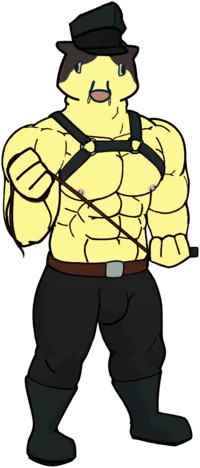 Aevann the capybara,
Aevann the capybara,  and August the vampire.
and August the vampire.  Together, they made the forest their playground, indulging in playful antics and thrilling adventures.
Together, they made the forest their playground, indulging in playful antics and thrilling adventures. 
While Marsey reveled in the excitement of mischief, her friends sometimes found themselves at odds with her relentless pranks and hijinks.  Platy, with his cleverness, often tried to devise ways to redirect Marsey's energies towards constructive endeavors.
Platy, with his cleverness, often tried to devise ways to redirect Marsey's energies towards constructive endeavors.  Wolf, though intrigued by Marsey's daring nature, sometimes found himself caught in the crossfire of her pranks.
Wolf, though intrigued by Marsey's daring nature, sometimes found himself caught in the crossfire of her pranks.  Aevann, ever the peacekeeper, worked tirelessly to restore harmony whenever Marsey's mischief caused groomercord.
Aevann, ever the peacekeeper, worked tirelessly to restore harmony whenever Marsey's mischief caused groomercord.  And August, with his stoic yet gentle demeanor, attempted to guide Marsey towards more thoughtful actions.
And August, with his stoic yet gentle demeanor, attempted to guide Marsey towards more thoughtful actions. 
Carp, however, had grown weary of Marsey's constant chaos. Tired of being the target of her pranks and longing for a more peaceful existence, Carp secretly sought solace in the company of the forest's conniving creatures.  Unknown to the rest of the group, Carp made a pact with a cunning fox named Vexar, promising to betray Marsey and her friends in exchange for a life of tranquility.
Unknown to the rest of the group, Carp made a pact with a cunning fox named Vexar, promising to betray Marsey and her friends in exchange for a life of tranquility. 

As the group embarked on a perilous quest to uncover the hidden Chamber of Whispers, where an ancient artifact known as the Golden Acorn lay,  Carp's treachery began to unfold. He subtly sabotaged their efforts, leading them astray with false information and stirring doubts within their hearts.
Carp's treachery began to unfold. He subtly sabotaged their efforts, leading them astray with false information and stirring doubts within their hearts. 
The moment of betrayal came when Carp, having gained their trust, lured Marsey and the others into a trap set by Vexar and his cohort of deceitful creatures.  Surrounded by enemies, the group found themselves in a dire situation. Carp, torn between loyalty and the allure of a peaceful existence, stood at the crossroads of his decision.
Surrounded by enemies, the group found themselves in a dire situation. Carp, torn between loyalty and the allure of a peaceful existence, stood at the crossroads of his decision. 

In a heart-wrenching moment, Carp's conscience prevailed, and he revealed Vexar's true intentions to his friends. Recognizing the error of his ways, Carp vowed to make amends and stand by their side, determined to help them overcome the impending threat. 
United once again, Marsey, Platy, Wolf, Aevann, August, and Carp unleashed their combined strengths against Vexar and his minions. With Platy's cunning, 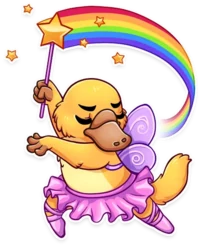 Wolf's ferocity,
Wolf's ferocity,  Aevann’s nimbleness,
Aevann’s nimbleness,  August's ethereal powers,
August's ethereal powers,  and Carp's newfound loyalty,
and Carp's newfound loyalty,  they fought back with unwavering determination.
they fought back with unwavering determination. 
In a climactic showdown, Marsey confronted Vexar, her eyes blazing with righteous fury.  With a daring leap, she managed to snatch the Golden Acorn, its power coursing through her veins. Harnessing the nut’s magic, she unleashed a dazzling display of light, banishing Vexar and his minions from the forest forever.
With a daring leap, she managed to snatch the Golden Acorn, its power coursing through her veins. Harnessing the nut’s magic, she unleashed a dazzling display of light, banishing Vexar and his minions from the forest forever. 
Victorious, Marsey and her friends emerged triumphant, the forest echoing with their resounding victory. Carp, humbled by the loyalty and forgiveness bestowed upon him, pledged his undying commitment to the group.  Together, they safeguarded the Acorn, ensuring its power would only be used to protect their beloved home.
Together, they safeguarded the Acorn, ensuring its power would only be used to protect their beloved home. 
From that day forward, the group's bond grew even stronger, as they learned the importance of trust, forgiveness. 
- 24
- 13

My favorite charity shop is where I found
I found a book called Great People of the Bible and how they lived with multiple pressed flowers inside.

Today I'll be visiting a bookstore that always has free books that they can't sell. Usually it's cookbooks, Christian self help, and dime novels.

What's you're coolest find?
- 8
- 11
Time for some Goodreads dumpster diving.
I loved this book. I thought it was really insightful and very diverse. I’m not BIPOC myself, I’m white, but this book helped me peek into the lives of girls & women who are BIPOC.
I might be a bit biased here because I have an absolute hatred of periods and dislike the thought that someone becomes a woman when they have one.
Learning about different cultures was a little interesting, but not enough to make this any more enjoyable.
Nooo! Bodily fluids aren't gross and funny! That's what moids want you to think!
I am a contributor to this anthology. So of course, I think it’s a wonderful and important collection of stories, not to mention groundbreaking, following the footsteps of Aida Salazar’s THE MOON WITHIN. My story is a little different from the others, in that it is rather fierce (showcasing a powerful protagonist who speaks out against the practice of shunning women when they are on their period).
The other stories are more celebratory. However, all our stories have a common theme: empowering menstruators and breaking the silence and stigma associated with menstruation.
At least she didn't rate it.
Calling the Moon is a collection of stories challenging the societal reluctance to talk about periods, told by authors of color. Excellent and important concept, even if I didn't like everything about the way it was done--with the exception of one story about a seemingly-nonbinary kid, the rest of the collection was pretty heavy on "this is what happens to WOMEN!" sentiments
; I don't recall there being any disability rep; and I felt there was a bit too much "periods are wonderful/a blessing/a source of wisdom!" and not enough acknowledgement that for many of us who menstruate, it just plain sucks in so many ways.
But at least we have a book that talks about periods at all, which is significant and helpful.
I continue to be confused by all these stories about characters who get their periods while not yet having any breast growth, body hair, growth spurt, acne, etc. Seriously, it felt like most of the narrators in this book went out of their way to mention their flat chest. As far as I know, this is not the typical order for puberty--periods are supposed to be one of the last changes (which makes sense evolutionarily). Yes, there are certainly people who experience puberty in many different ways, but why is this specific atypical variation overwhelmingly dominant in books? My only guess is that maybe authors think it makes their characters seem younger or more innocent somehow?
Which opens up a whole different issue--are we normalizing periods at the cost of de-normalizing or even sexualizing the rest of puberty? Hmm, I'll need to think about this more.
- 46
- 34
Is this a big money making opportunity 
Here's one example where he's making bank from both selling on Amazon and running a patreon.
It's basically him writing self insert fiction of him fricking anime monster girls and paying an artist to make artwork for books that make me neets feel 
How can I make a bajillion dollars from this, please include clear instructions.
This post isn't me coping
- 48
- 140
This sounds dumb, but is true: As a kid, I grew up with a lot of violence. Men, in my family, school, but also on the street, were either utterly angry or utterly indifferent at all time. [...]
Due to this, I didn't really socialize with guys till I was an adult. And while I do know some "opposite examples" now, this shit is still bleeding in my writing. Like, I've been writing a script with around 5 main male characters. In general I treated them like every other character: Character, motivations etc. However, now a Beta-Reader informed me that they all sound needlessly aggressive. Like: Rude, cold and/or indifferent.
Very strong in contrast to the female characters, who are very "normal", including empathy, kindness and "often sounding like the last wall between a full out massacre sometimes".
Now, obviously I don't want that. I live for four-dimensional characters. But looking through my other stories, I can def see a pattern: Men (if not the LI) are often villains. There are grumpy old men, shitty fathers, sociopathic Mafia bosses etc. "Positive" examples, are mostly just variations of 1.) My cousin (very nice, extroverted guy) and 2.) character-types I picked from other stories (e.g. "old man who is too invested in his grandson's love life")
Any advice? Cause at this rate, I'll paint a very, very bad picture and I hate it
"How can I make myself not hate men? I know! I'll talk to some Redditors!" 
 🤝
🤝 
Ever notice how their go to examples are never books? 
OP:
 You will NOT have a man who protects you. You WILL comfort your boyfriend when he comes home crying after work.
You will NOT have a man who protects you. You WILL comfort your boyfriend when he comes home crying after work.
Women be reading romance. That's basically the same as me edging in my goon cave for four hours every night.
If you wanted to, you could write the men as "normal" people, too. As people first, men second.
Novice writers when you explain to them that the opposite s*x are people
Trust your instincts, sister 
Five years of therapy didn't work? Better give it another five years. 
 Is this... the ick?
Is this... the ick?
 I AM NOT CRAZY!
I AM NOT CRAZY!
Without actually reading her work I can't evaluate it or try to psychoanalyze her.
What I can tell you is that Redditors are the last people you should ask about masculinity. Redditors are hardcore feminists to the exact extent that they believe feminism strips them of masculine responsibility. Once we get rid of toxic masculinity, women will finally throw themselves at timid scrawny nerds who cry once a week... Right? 
It seems to me like the obvious advice is to portray male aggression honestly, while showing the neutral or positive ways it can be channeled. The Redditors instead are telling her to feminize her male characters, watch children's cartoons, and get (another five years of) therapy, sweaty.
- Stoicpeace : More like !Intenstinalworms
- 10
- 28
Greetings dramacels 
This will be the ping for /h/lit and book club members !bookworms.
You can start applying, then we will use it for literary related matters.
Special thanks to @24-7_ROCK_PEEPEE for the 1000 coins donation for the ping group.
@gayr-slur
@phatpeepeetrappygroyper
- Stoicpeace : This slop is worse than fanfics
- 16
- 13
This post made me want to check the quality of these 'GPT agent' generated books, but I'm a codecel who can only read Javanese, so I'll let you litcels decide how good this is. I've attached the whole .epub (capy cockblocked, just check the github link) if you're interested in reading the rest for some reason  . Here's some other sample books from GPT-4 as well, and the github where you can generate your own (as long as you have a GPT-4 api key
. Here's some other sample books from GPT-4 as well, and the github where you can generate your own (as long as you have a GPT-4 api key  ):
):
https://github.com/mshumer/gpt-author/tree/main/example_novel_outputs
EDIT: oops, wrong hole! 
The Healing Flame
By GPT-4 under the pseudonym "gpt-author"
The Light of Hope
Once upon a time, hidden within a tapestry cosmos of varied worlds, there was one world that stood just a little sadder than the rest. This was Illyria, a realm that had seen brighter, more hopeful days. It now laid scarred and weary, like an old, battered soldier after many grueling battles. The ongoing plague had shattered its once-vibrant spirit, sucking away every ounce of life and leaving it a mere shadow of its former glory.
In the face of such calamity, it was not ignorance, but stark awareness, that lined the worried faces of Illyria's inhabitants. The silent killer, in the form of the plague, had crawled into every living thing, painting the once verdant land with an unnerving hue of despair. Like vicious fire reducing green wood into smoke, the disease sucked the vitality out of the people, replacing their rosy cheeks with the gray pallor of suffering. Yet amidst this doom and gloom, there was one remarkable woman who chose to stand defiant.
They called her Ariadne. She was not flamboyant or flashy but carried a quiet strength, a modest sorceress who spent her days swirling magic around her fingers, applying it as a soothing salve to heal many. Her countenance was plain, yet it served as the canvas where her profound qualities found their expression. Ariadne's eyes were always alive, bright, and full of warmth even in the bleakest of times; they flickered with a divine purpose.
Ariadne was no stranger to strife and hardship, yet she found herself armored by a fierce resolve. With each passing day, as the plague tightened its icy grip around Illyria, her compassion flared into determination. There was a calling, loud and clear, pulling her towards an adventure. This subtle yet intense nudge had always been there, hidden in the recesses of her heart, waiting to come out when the time was right. Now, as her homeland lay in the painful cradle of sickness, she knew the time had come.
The Phoenix Lore was what they spoke of in hushed whispers and reverence. A divine spell, written in a language older than time, it was said to have the power that transcended the limits of mortal magic. It breathed life into the lifeless, mended the unredeemable, and healed the unhealable. It was a beacon of hope, a lost scripture wrapped in stories of the phoenix rising from the ashes, symbolizing triumph in the face of adversity. However, much like the phoenix of the tales, it disappeared after an ancient cataclysm, leaving behind only the vague aura of its presence in folk stories.
The veil of legends and mystery shrouding the Phoenix Lore seemed to have deterred many from its pursuit. After all, it was not an adventure for the faint-hearted. Past seekers had undergone formidable trials, faced monstrous beasts, and traversed treacherous landscapes, with none returning victorious. But the whispering hope of the Phoenix Lore was like a calling for Ariadne. She had the heart of a lioness, the resolve of a mother protecting her cub, and her cub was Illyria. She knew that it was a gamble, a venture which might lead her to glorious victory or dismal defeat. But the stakes were too high; she had to take the risk.
So, Ariadne packed her modest satchel, filled it with her essential magic paraphernalia, took a deep breath, and ventured forth. Home, with its comforts and security, was a warm cocoon that she had to shed. The warmth of her bed, the familiar cobbled streets, all were left behind. A vast expanse of uncertainty and challenge lay ahead, filled with secrets buried in the sands of time. Yet, driven by her love for Illyria, Ariadne stepped forward with unflinching determination. Would she return as a radiant hero, or would she, too, be submerged into the annals of defeat? Only time would whisper the secrets of her destiny. But in her heart, a flame of hope continued to flicker, guiding her forward with its soft luminescence, feeding her courage for the arduous journey ahead.
The Path Awaits
As dawn gently caressed folds of the morning, Ariadne stood at the threshold of her adventure. Her radiant aura was undimmed, her eyes shining with the ardent fires of resolve as she mapped the path ahead. The air was fragrant with the scent of morning dew and innocent sunshine, refusing to yield to the prevalent despair. Cradling such precious moments of tranquility in her heart, she ventured forth, the Phoenix Lore her guiding light in the vast labyrinth of the unknown.
Her path led her through verdant woods and over foreboding mountains, where each rustle and murmur seemed a primal hymn dedicated to nature's indomitable spirit. It was almost a serene painting, were it not for the sporadic cough of a withered tree or the hushed whimper of an ailing beast - the telltale traces of the relentless plague.
One week into the journey, a mural of ancient ruins emerged, defining the Land of Forgotten Echoes. Its history was but a hazy silhouette against the backdrop of time, but now, it was going to be the theater where Ariadne would dance with fate itself. With a deep breath, she stepped across the threshold into the realm of antiquity.
The ruins sang an olden lullaby, echoing the tales of mythical beasts and divine healers who had etched the chapters of Illyria's past. Their whispers guided Ariadne further into the spectral embrace of the ruins, where every nook and cranny breathed an air of forgotten majesty. Spiraling towers and vast courtyards stood as remnants of old grandeur, guarding cryptic messages and labyrinthine enigmas, the keys to Phoenix Lore.
The vestiges of the lost city were not devoid of guardians, however. Disembodied shadows stirred in the depths of loneliness, taking form as monstrous beasts birthed from world’s estranged nightmares. Beastly roars echoed, and venomous fangs gleamed, snapping at the tranquility of Ariadne's path. But she stood invitingly unafraid. The howling winds seemed to flutter around her, tightening into a magical cocoon that braced her against the savage onslaught.
Summoning her powers, Ariadne danced with the pulsating rhythm of her magic, erecting protective barriers and mystical wards against the monstrous threats. Powerful energies weaved around her like serpents of the ethereal plane, responding to the will of their mistress, crackling with an electrifying symphony as they ushered forth destruction upon her adversaries.
The unearthly groomercord of battle echoed into silence as one monstrous beast after another fell, humbled by Ariadne's sorcery. Panting heavily, she emerged unscathed from their monstrous assault. The confrontation had only solidified her resolve and sharpened her will.
Sweeping her gaze over the ancient ruins once more, Ariadne realized the key to unlocking the Phoenix Lore resonated with the lessons earned in her plight and the tales sung by the ruins. Guided by this newfound understanding, she delved into the antiquity, letting her powers tunefully engage with cryptic signals embedded within the crumbled stones to decipher the hidden patterns that held the chronicles of the Phoenix Lore.
One by one, the verses of the divine scroll unfolded in her mind, revealing the dormant potential that lay locked within their ancient wisdom. Each line, every word was a revelation, whispering tales of relentless spirits and unprecedented revival that reflected her own ambitions. The verses were not just mere scriptures. They were a testament of faith, of resilience. They held the promise of a rebirth resembling a phoenix's rise from its ashes, an echo of the path that Ariadne herself had embarked on for Illyria's redemption.
Thus, streaming with the first insights of the sacred Phoenix Lore from the forgotten echoes, Ariadne navigated deeper into her path. Embracing the challenging trials and timeless tales, her heart hummed with the symphony of hope that reverberated within the ancient ruins, paving the path where destiny awaited her.
-
uwu
: >h/lit >comic >

- 22
- 47
i love these comics. in the thread where it was discussed, @Tomboy_Supremacist said they should be rDrama required reading, so i figured i’d write a little post about them and what they mean to me. (btw i wear a lot of wifebeaters and change my car’s oil myself
 )
)
anyone with an !edgelords sense of humor can find something to appreciate in these comics. the art style is lurid and greasy, the language plain and foul, and the subject matter is explicit and bleak to the point of absurdity.
the titular Megg and Mogg are a codependent witch  and her pet cat
and her pet cat  , who spend their days leeching the welfare system, smoking gravity bongs in their hovel, and having revolting s*x with each other (yes the cat is shown to have a detailed human peepee and yes it is fricking nauseating).
, who spend their days leeching the welfare system, smoking gravity bongs in their hovel, and having revolting s*x with each other (yes the cat is shown to have a detailed human peepee and yes it is fricking nauseating).
rounding out the main cast is Owl  , a pathetic wretch of a wagie who is doomed by the narrative (and his own lack of willpower) to never fully manage to escape their whirlpool of degeneracy. the Kramer figure is Werewolf Jones
, a pathetic wretch of a wagie who is doomed by the narrative (and his own lack of willpower) to never fully manage to escape their whirlpool of degeneracy. the Kramer figure is Werewolf Jones  , part time drug dealer and full time hydrogen bomb, a volatile exhibitionist and hedonist who has died in both timelines so far and is always cumming all over the place
, part time drug dealer and full time hydrogen bomb, a volatile exhibitionist and hedonist who has died in both timelines so far and is always cumming all over the place 
the author is an aussie named Simon Hanselmann, who is honestly kind of based for being quite obviously AGP for his entire career and yet continuing to openly identify as a man, even in this current year. he has never, as far as i know, publicly appeared not in drag.
one may ask, isern why the frick would you ever read this shit? and the answer is, simply, that it is good. it is exceptionally gross, it is sometimes very sad, it is often absolutely hilarious, and it is always painful to read. there is graphic violence, hardcore drug use, rampant scat humor, and peepees everywhere; but lurking underneath the layer of bravado, there is a heavy and heartfelt melancholia that i find captivating.
i’m trying not to spoil any of the plot(s)- i want to post some of my favorite strips, but most of them are 6-8 pages long and not done justice by my phone camera. here are some of my favorite panels from the first book.
if you’re interested you can read the entire first book Megahex here
the first book is mostly vignettes that set up the story, the 2nd and 3rd flesh out that story, and the 4th then continues the plot and gets a lot more linear. sorry if that sounds confusing but that’s just the way it is. there’s also an alternate timeline series set during Covid which i haven’t read yet.
drama?
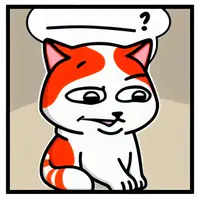
surprisingly i did a lot of googling and could only find 2 instances of seethe related to this series.
one being this website where the author sneeds while accusing Hanselmann of “childhood appropriation” (Meg and Mog are also characters from a children’s book series from the 70s).
and this book review where the author is absolutely shocked that a bunch of fictional junkies don’t have the proper approved opinions on the Floyd riots.
Instead of righteous indignation, they’re more apt to ooze cynicism; instead of class consciousness, they cultivate drugged-out unconsciousness; and instead of radical queer community, they scrape by in radical queer dysfunction.
The turmoil of 2020 only exacerbates this nihilism. Throughout Crisis Zone, Megg, Mogg, and Owl spend far more time fretting about cancel culture than they do considering why riots are happening all around them. The George Floyd rebellion stays mostly in the margins, surfacing occasionally in the omnipresent ACAB graffiti that looms in the background whenever someone ventures out of the house. Seattle’s monthlong occupation protest, the CHOP, makes an appearance when Megg passes out on a sidewalk and wakes up in a protester’s tent. The camp doesn’t exactly get a good review. “My god,” Megg exclaims, “it’s just politics and activism everywhere! It’s like Twitter’s been smeared across every single surface.”
anyway i fricked up my post so i lost interest now lmao. goodnight frens! 


- 42
- 38
https://www.amazon.com/-/es/Mikhail-Bulgakov/dp/0679760806
This is the Burgin/O’Connor translation. It is considered the best one
The early translation by Glenny runs more smoothly than that of the modern translations; some Russian-speaking readers consider it to be the only one creating the desired effect, though it may take liberties with the text.[citation needed] The modern translators pay for their attempted closeness by losing idiomatic flow.[citation needed] Literary writer Kevin Moss considers the early translations by Ginsburg and Glenny to be hurried, and lacking much critical depth.[32] As an example, he claims that the more idiomatic translations miss Bulgakov's "crucial" reference to the devil in Berlioz's thoughts (original: "Пожалуй, пора бросить все к черту и в Кисловодск…"[33]): "I ought to drop everything and run down to Kislovodsk." (Ginsburg) "I think it's time to chuck everything up and go and take the waters at Kislovodsk." (Glenny) "It's time to throw everything to the devil and go off to Kislovodsk." (Burgin and Tiernan O'Connor)"It's time to send it all to the devil and go to Kislovodsk." (Pevear and Volokhonsky)"To heck with everything, it's time to take that Kislovodsk vacation." (Karpelson) "It's time to let everything go to the devil and be off to Kislovodsk." (Aplin) "It's time to throw it all to the devil and go to Kislovodsk." (John Dougherty) Several literary critics hailed the Burgin/Tiernan O’Connor translation as the most accurate and complete English translation, particularly when read in tandem with the matching annotations by Bulgakov's biographer, Ellendea Proffer.[34] However, these judgements predate translations by Pevear & Volokhonsky, Karpelson, Aplin, and Dougherty. The Karpelson translation, even when republished in the UK by Wordsworth, has not been Anglicised, and retains North American spellings and idioms.
If there’s some Russian here maybe he, she, they could tell us about that Russian quote and compare it.
Anyways, voting on the matter of pages is until midnight E.T. But there’s such a big difference is fair to say 100 pages is going to win.
If the 100 pages option wins then we read the first 7 chapters. Otherwise we would read the first 3. @Mikaela please ping all of those who voted today. We’ll start discussions on Sunday July 2nd at noon E.T.
A nice Sunday and a good week to all of you guys 
- 6
- 17
personally I think the problem is dahlite culture
- 53
- 37
So for our first book club the winner is The Master and Margarita
https://www.amazon.com/Master-Margarita-Mikhail-Bulgakov/dp/0802130119
https://www.paskvil.com/file/files-books/bulgakov-master-and-margarita.pdf
Here’s a free pdf, different translation though.
This is the first time we’re doing this so is kind of messy. But I think this format should work from now on. We’ll have a nomination thread, then a voting thread with the most votes one wins by plurality (voting should be on Saturday and then close by midnight), this first time we did both in a single thread, but next one should be divided.
The book club discussions will be hold every Sunday, I’ll post them around noon E.T.
Now I have to ask, is 100 pages a week fine? Or 50 pages?
If it is 100 we could agree to read up to Chapter 7, which ends at page 97. If is 50, until page 53, that is, the first 3 Chapters.
@Iamvanosexual
@Gorgeous_Gorillawitz
@MrPennyCoomsToKids
@Casio
@gaslighter
@pm-me-manifestos
@CantorDust
@bogged
@KatserKittyGroyper
@stoploggingmeoutuwu
@neoconshill
@Red_Shill
@Tomboy_Supremacist
@LilMarseyontheprairie
@Modern_Major_General @gayr-slur
@BFBugleberry
@Eatprayspazz
@Style-N-Grace
@Sal
@johannesalthusius
@MayflyAlt98
@GatanKot
@Elon_SUSk
@Lv999_Lich_Queen
@Platy



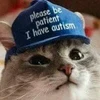





 MERRY CHRISTMAS
MERRY CHRISTMAS 



 gets accidental fame out of TikTok video, unrealized geniuses /lit/erally shit and piss themselves
gets accidental fame out of TikTok video, unrealized geniuses /lit/erally shit and piss themselves










.webp?h=8)


























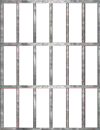







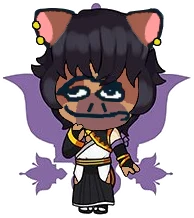


 this is who I am now
this is who I am now





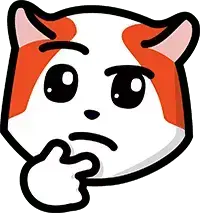





 CPTSD /r/writing foid: Men constantly become violent/aggressive in my stories...how do I change that?
CPTSD /r/writing foid: Men constantly become violent/aggressive in my stories...how do I change that? 








